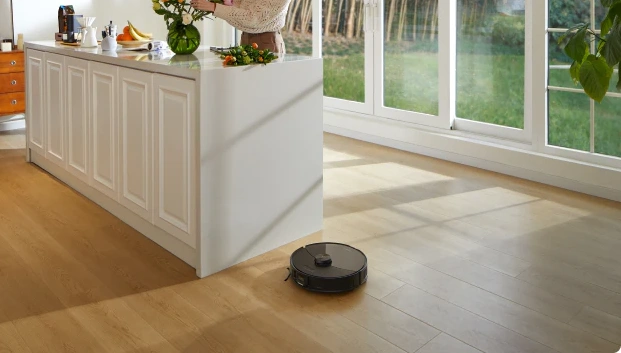Eliminating Odors in Robot Vacuums: Strategies for Freshness

Image: Roborock
Combatting Bad Smells from the Roborock Dirty Water Tank
The dirty water tank smell is a known issue on Reddit.
Dealing with a horrible smell in your Roborock vacuum’s dirty water tank can be a daunting task, but thankfully, there are several effective solutions to tackle this issue. Over time, I’ve gathered a range of tips and tricks that really work wonders for eliminating odors and keeping the tank fresh.
-
White Vinegar: Adding a small amount of white vinegar to the empty waste tank after cleaning it out can neutralize odors and keep the tank smelling fresh for a week. It’s important to do this every time you empty the tank to maintain its odor-free condition. Not only does vinegar manage the smell, but it also prevents the formation of sludge at the bottom of the tank, which is a common issue.
-
Dish Soap: A tiny drop of dish soap in the bottom of the tank after emptying can prevent smells and keep dirt from sticking, making the next cleanup easier. However, caution is advised with vinegar as it can potentially damage the rubber components at the top of the waste tank over time.
-
Silver ion pods (Amazon) are another innovative solution that some users swear by. These pods can be placed in the clean water tank to combat odors and bacteria. Some users report great results, or at least better longevity with their dirty water tank. Adding one to the clean tank should carry the benefits over to the dirty water tank because of the direction of water flow with the robot. Some folks are adding one to both clean and dirty water tanks but that shouldn’t be needed:
“As cleaning proceeds, silver ions also continue to transfer to the floor and waste water tank, providing peace of mind during whole-house cleaning, fresh water storage, mop washing and waste water recycling.”
These, and a splash of vinegar after emptying the dirty tank can provide an added layer of odor protection.
Managing Mop Pad Odors
Mop pads on robot vacuums can also harbor unpleasant smells if not cleaned properly. The first and most effective tip for combating mop pad odors is to manually wash the pad after every mopping run. This simple step can significantly reduce the chances of odor development.
For those without the latest models that automatically wash and dry mop pads, here are a few additional tips:
- Dry Thoroughly: After washing, ensure the mop pad is completely dry before reattaching it to the vacuum. Moisture can lead to mold and mildew growth, which contributes to bad smells.
- Use Mild Detergents: Wash the mop pad with a mild detergent to remove dirt and bacteria effectively without damaging the pad material.
- Baking Soda: For tougher odors, soaking the mop pad in a solution of water and baking soda before washing can help neutralize smells.
- Replace Regularly: Over time, mop pads wear out and may hold odors more stubbornly. Replacing them regularly can help keep your vacuum smelling fresh.
By following these tips for both the waste tank and mop pads, you can ensure your robot vacuum remains a valuable ally in keeping your home clean and fresh-smelling.
Learn more about dirty water tank smell